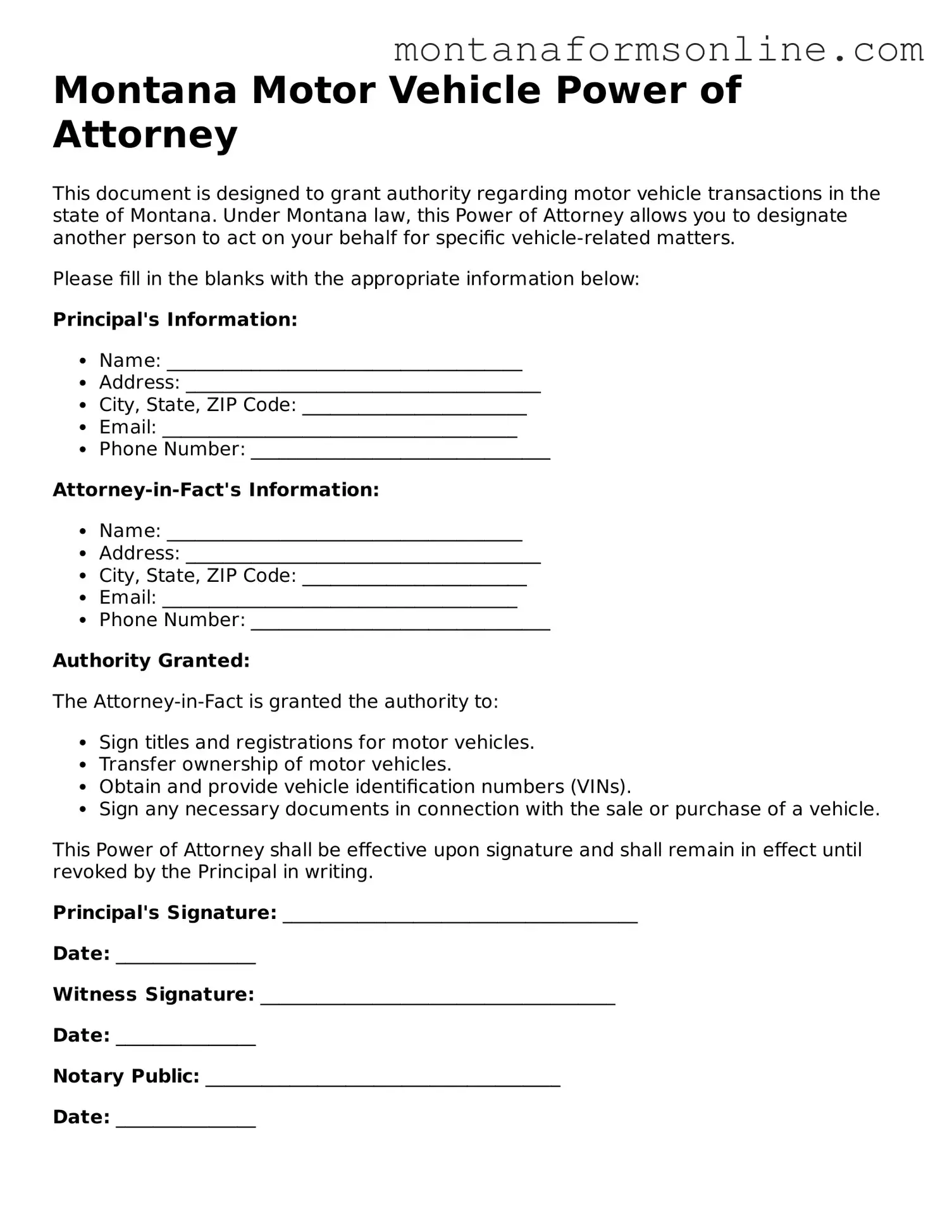The Montana Motor Vehicle Power of Attorney form shares similarities with the General Power of Attorney. Both documents allow one individual to grant authority to another to act on their behalf. In the case of the General Power of Attorney, the scope is broader and can encompass various financial and legal matters, whereas the Montana Motor Vehicle Power of Attorney is specifically tailored for matters related to motor vehicles. This specificity ensures that the agent can handle tasks like transferring title, registering vehicles, or signing documents related to vehicle ownership without ambiguity.
In the world of leasing, understanding the nuances of a Lease Agreement form is crucial for both tenants and landlords. This legally binding document outlines the terms of the rental arrangement, ensuring clarity and protection for all parties involved. To further explore the intricacies of lease agreements and access various templates, visit TopTemplates.info, where you can find resources to assist in drafting a comprehensive agreement.
Another document akin to the Montana Motor Vehicle Power of Attorney is the Limited Power of Attorney. Like the Montana form, the Limited Power of Attorney grants authority for specific tasks or transactions. However, the Limited Power of Attorney can be used for various purposes beyond just motor vehicles, such as real estate transactions or financial decisions. The key similarity lies in the defined scope of authority, allowing the principal to maintain control over other aspects of their affairs while delegating specific responsibilities.
The Durable Power of Attorney is another document that resembles the Montana Motor Vehicle Power of Attorney. Both forms empower an agent to act on behalf of the principal. However, the Durable Power of Attorney remains effective even if the principal becomes incapacitated, providing continuity in decision-making. While the Montana form focuses solely on vehicle-related matters, the Durable Power of Attorney can cover a wide range of financial and healthcare decisions, making it a more comprehensive tool for long-term planning.
The Healthcare Power of Attorney also bears resemblance to the Montana Motor Vehicle Power of Attorney in that it designates an agent to make decisions on behalf of the principal. The primary difference is the context in which these powers are exercised. The Healthcare Power of Attorney is focused on medical decisions, whereas the Montana form is limited to vehicle transactions. Both documents empower individuals to choose trusted representatives to act in their best interests, emphasizing the importance of agency in personal matters.
Another similar document is the Revocation of Power of Attorney. While this document serves a different purpose, it is essential in the context of powers of attorney. The Revocation of Power of Attorney formally cancels any previously granted authority, including that of the Montana Motor Vehicle Power of Attorney. Both documents highlight the importance of control over one’s affairs, ensuring that individuals can manage who has the power to act on their behalf and under what circumstances.
Lastly, the Vehicle Title Application can be compared to the Montana Motor Vehicle Power of Attorney. While the Vehicle Title Application is primarily a form used to register or transfer ownership of a vehicle, the Montana Power of Attorney is often required to facilitate these processes. Both documents are integral to the management of vehicle ownership, but the Montana form specifically allows an agent to act on behalf of the owner, streamlining the transaction process and ensuring compliance with state regulations.

